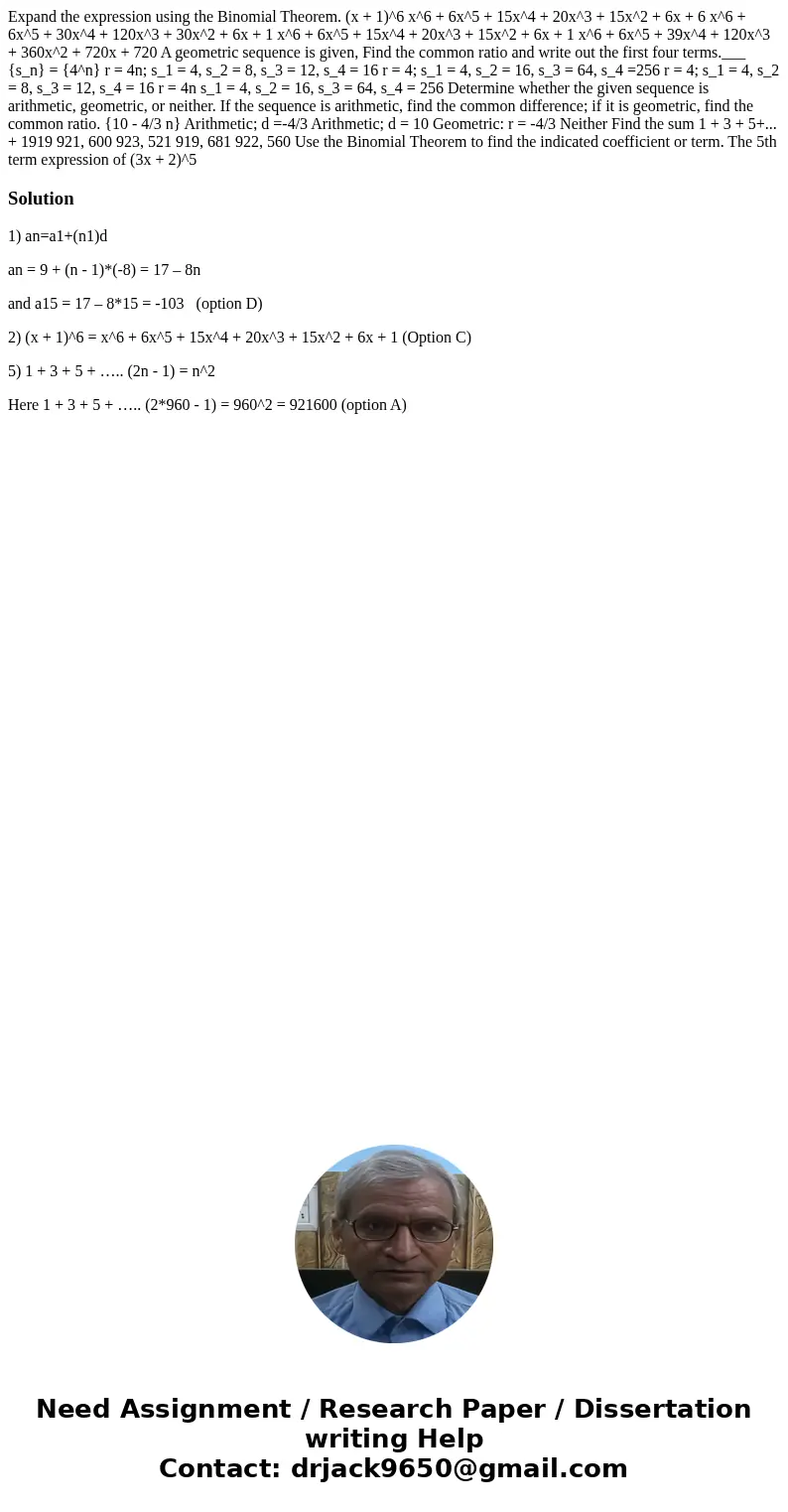Expand the expression using the Binomial Theorem x 16 x6 6
Expand the expression using the Binomial Theorem. (x + 1)^6 x^6 + 6x^5 + 15x^4 + 20x^3 + 15x^2 + 6x + 6 x^6 + 6x^5 + 30x^4 + 120x^3 + 30x^2 + 6x + 1 x^6 + 6x^5 + 15x^4 + 20x^3 + 15x^2 + 6x + 1 x^6 + 6x^5 + 39x^4 + 120x^3 + 360x^2 + 720x + 720 A geometric sequence is given, Find the common ratio and write out the first four terms.___ {s_n} = {4^n} r = 4n; s_1 = 4, s_2 = 8, s_3 = 12, s_4 = 16 r = 4; s_1 = 4, s_2 = 16, s_3 = 64, s_4 =256 r = 4; s_1 = 4, s_2 = 8, s_3 = 12, s_4 = 16 r = 4n s_1 = 4, s_2 = 16, s_3 = 64, s_4 = 256 Determine whether the given sequence is arithmetic, geometric, or neither. If the sequence is arithmetic, find the common difference; if it is geometric, find the common ratio. {10 - 4/3 n} Arithmetic; d =-4/3 Arithmetic; d = 10 Geometric: r = -4/3 Neither Find the sum 1 + 3 + 5+... + 1919 921, 600 923, 521 919, 681 922, 560 Use the Binomial Theorem to find the indicated coefficient or term. The 5th term expression of (3x + 2)^5
Solution
1) an=a1+(n1)d
an = 9 + (n - 1)*(-8) = 17 – 8n
and a15 = 17 – 8*15 = -103 (option D)
2) (x + 1)^6 = x^6 + 6x^5 + 15x^4 + 20x^3 + 15x^2 + 6x + 1 (Option C)
5) 1 + 3 + 5 + ….. (2n - 1) = n^2
Here 1 + 3 + 5 + ….. (2*960 - 1) = 960^2 = 921600 (option A)

 Homework Sourse
Homework Sourse